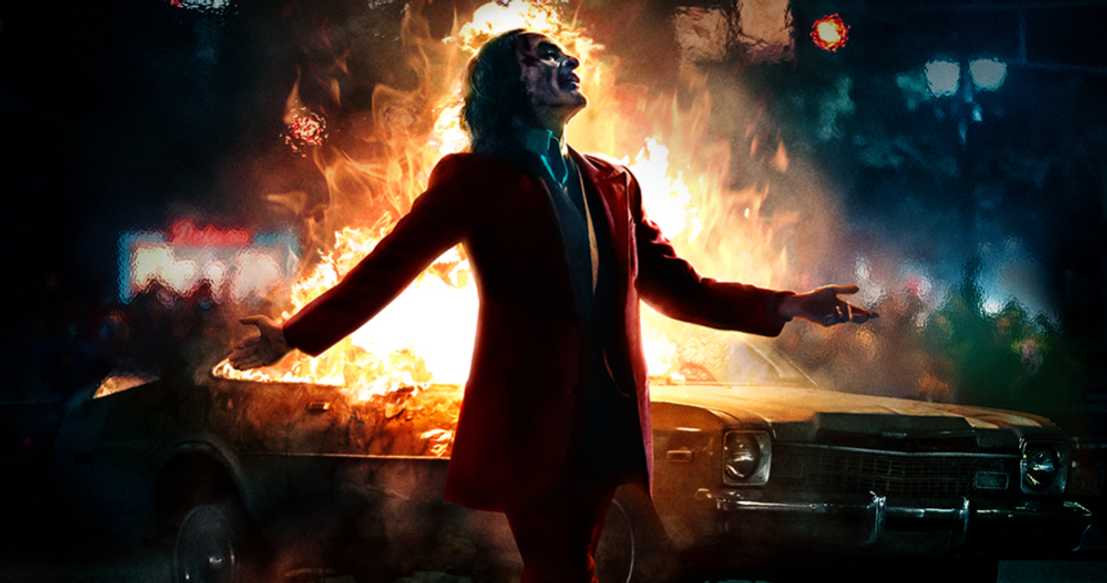This article contains spoilers from JOKER.
Click here for our non-spoiler review.
Joker is set to make waves in theatres all around the world come early October. We certainly have high hopes for the film, believing that it has the potential to not only be the greatest film of 2019 but one of the most important films in the comic book cinematic genre. While a lot of critics have praised the film for Phoenix’s potent performance and Phillip’s immaculate direction, concerns have been raised with regards to the dark subject matter that the film broaches.
And so like with videogames and marijuana, moral alarmists have seen fit to decry the film as a glorification of violence and a romanticization of anti-social aspects. As much as we adore the film as a piece of high art, we are compelled as critics and consumers to address this issue. To dig deeper past the panic and protest to see if such claims have substance to them.
The Romance of Revenge and Revolution
First thing’s first, let’s establish a clear definition for what we mean by romance in this context. To romanticize means to perceive a particular narrative or element in an ideal or highly regarded fashion. For example, the romance of a fair and virtuous knight in shining armour coming to sweep a beautiful maiden off her feet. In contrast to the grim reality of knights being more akin to mercenaries in medieval times. A romantic view takes a rosy and near mythologized perspective of the narrative. Cool? Cool.
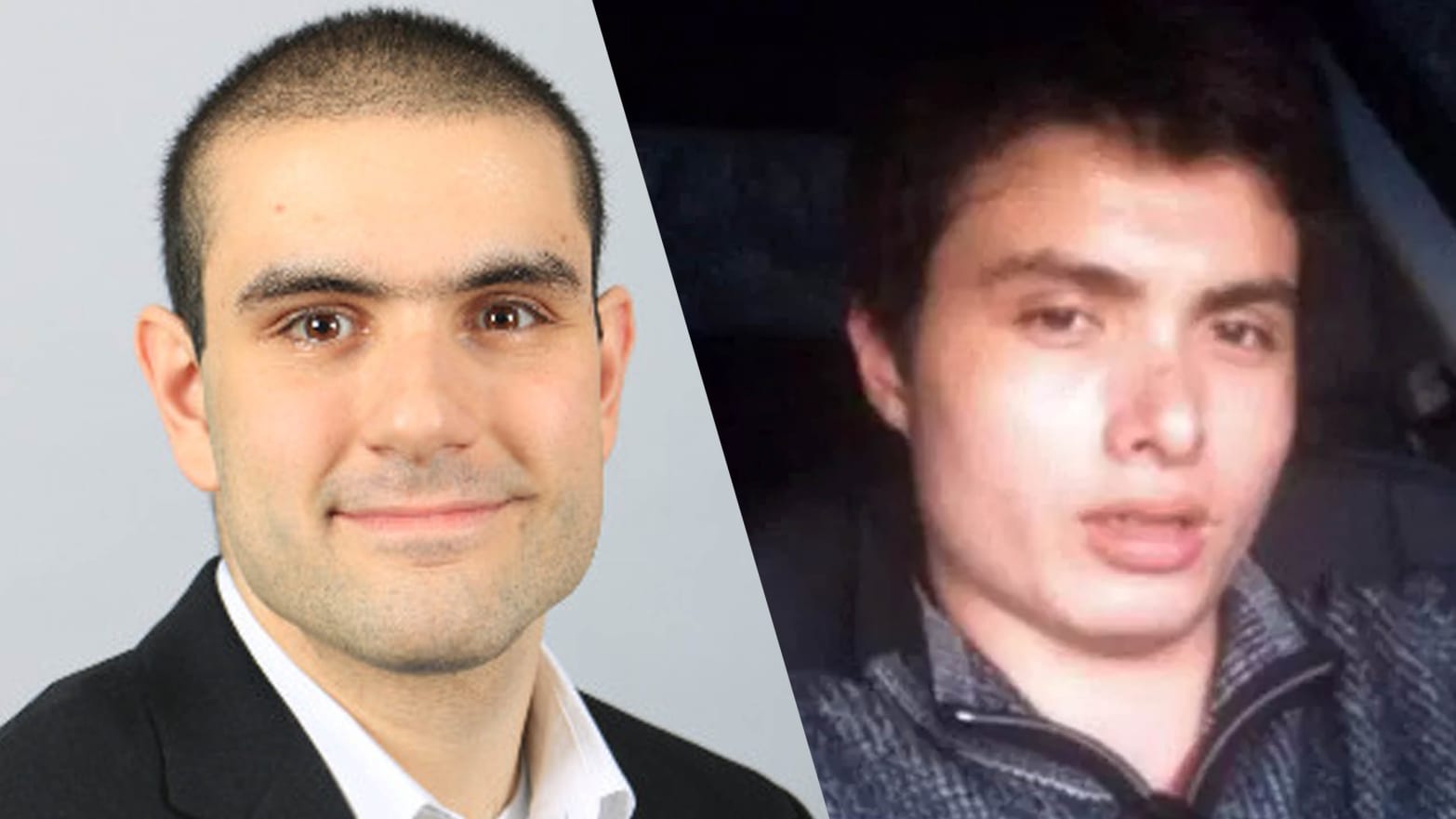
There’s an idea floating around the net that Joker is a toxic romanticization of a lonely, entitled antisocial white man taking out his frustration on society because he’s not getting the treatment he deserves. Some news sites have drawn parallels between the type of revenge fantasy the film seemingly purports with the ones found among dangerous alt-right fringe groups like the Involuntarily Celibate (Incels). Individuals who are lonely, sexually frustrated and often bigotted men who. in the past, have been responsible for terrorist attacks. Some of the more prominent attackers being 2014’s Elliot Rodger and 2018’s Alek Minassian.
So are there certain dangerous antisocial traits within the character of Arthur Fleck and his story that certain more volatile folks could engage with? Admittedly, yes there are. Does the film at any point truly romanticize his actions and Fleck as some sort of hero? I’d argue that the film doesn’t but before we get into that, let’s actually take a look at some films that have actually romanticized this violence as noble. A prime example would be the Wachowski’s V For Vendetta.
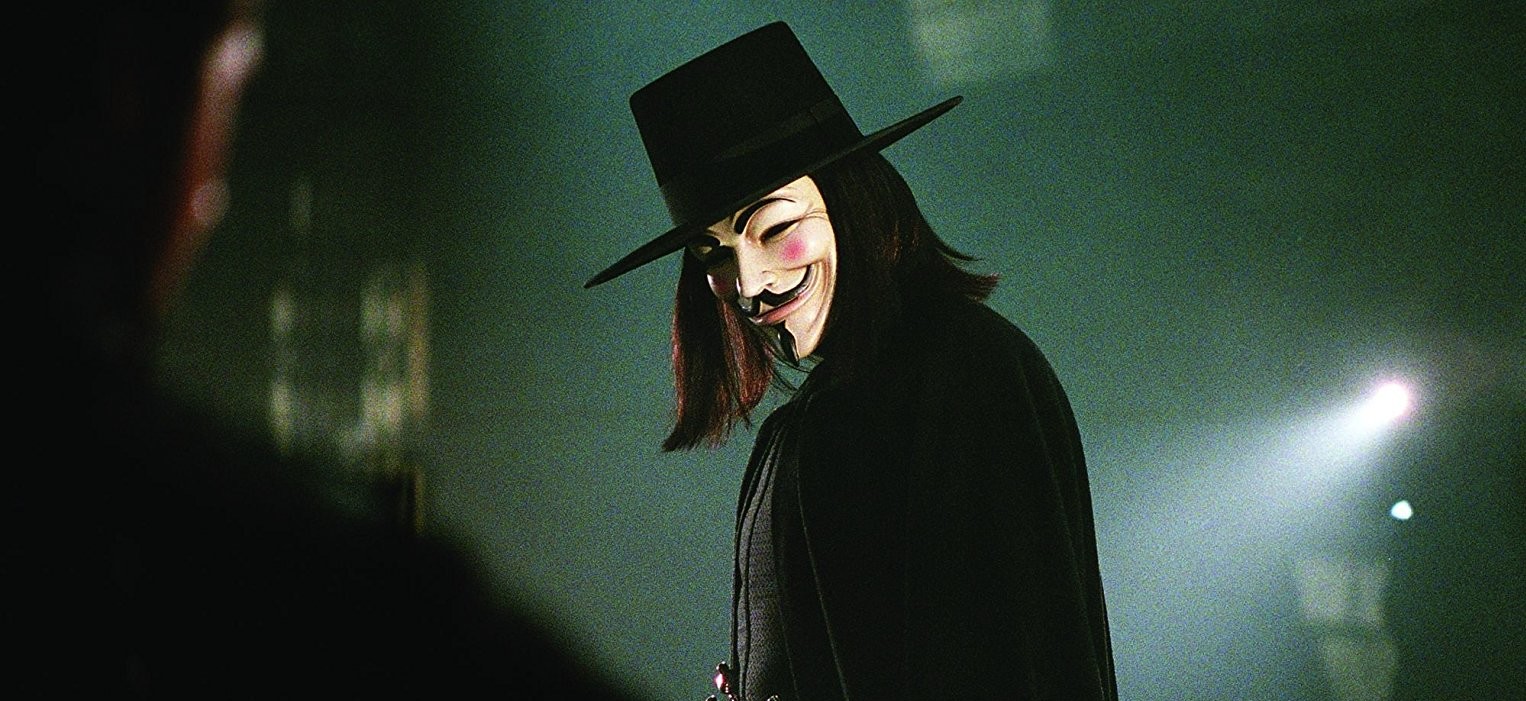
It should be noted that I personally love this film as a piece of badass anti-fascists propaganda, unlike the author of its comic book counterpart, Alan Moore. The original comic book version saw a more nuanced version of the character, painting V as a mentally unstable anarchist who contends with an oppressive system whose beliefs and mechanisms are morally dubious.
In the film, however, V is painted as a vigilante poet warrior with dreams of revolution and radical justice. A populist superhuman knight who wields daggers and dispatches his fascist foes with stylized Wachowskian violence and action. A hero, in service to the common man, who spurs the people to rise up. The Norsefire government in the film is depicted as deliberately evil and nefarious neo-conservatives who use chemical warfare on their populace as a form of control.
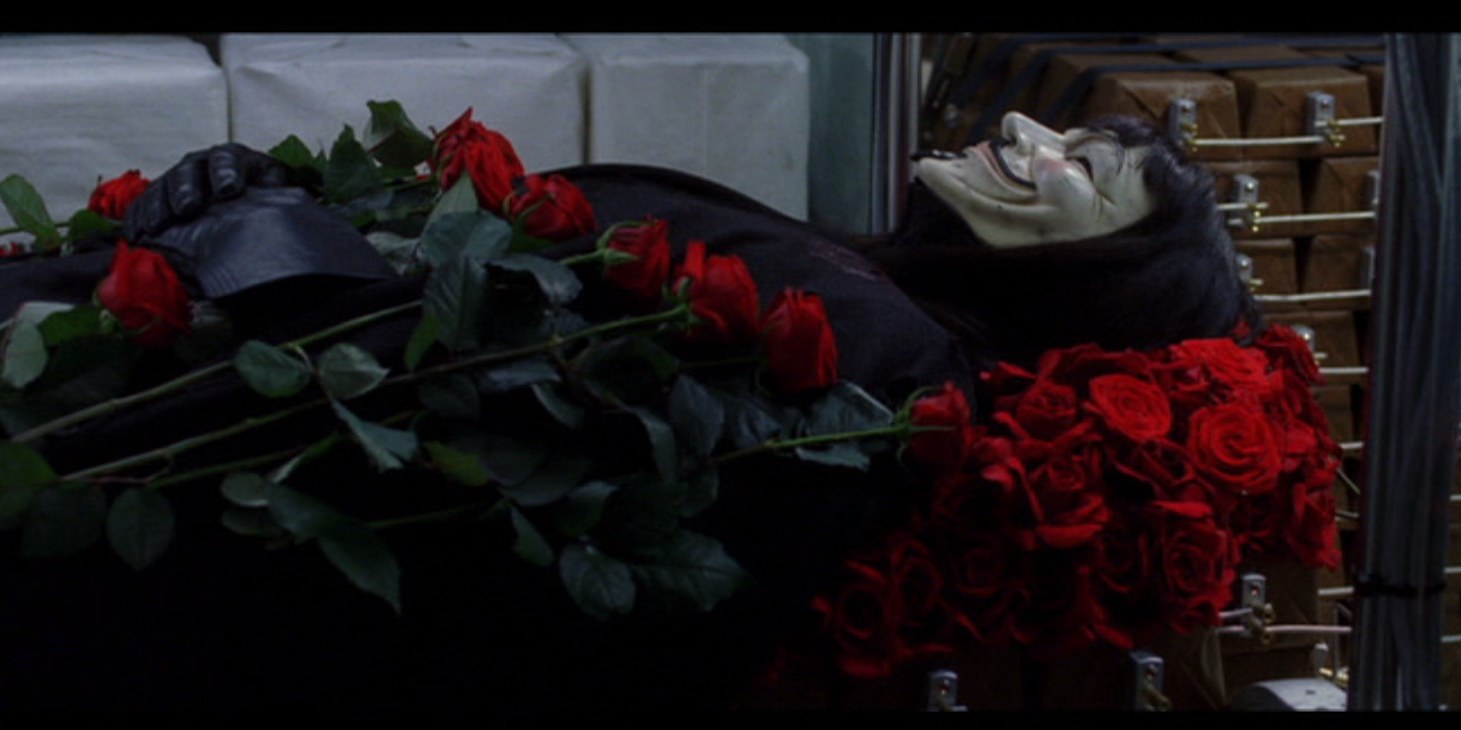
At the end of the day, V dies a rather romantic death: expiring on a bed of roses on a bomb-riddled train ready to blow up a parliament building. All this after gutting a small army of armed soldiers and giving us one hell of a speech of how you can’t kill ideas because they are “bullet-proof”. At the end of the day, he inspires the common man to rise up, shock the system, attack authorities and bring the Norsefire government down. Does Todd Phillip’s Joker bear a subversive and “dangerous” political message dressed in the vernier of glorified gore and revolution? No, it doesn’t.
Arthur Fleck, for lack of a better word, is a loser. For something to be romanticized, there has to be a break from the real into the ideal. In films like Wanted, we see McAvoy’s Wesley Gibson actualize from down-on-his-luck doormat to badass, hyper-accurate assassin who takes control of his life and takes shit from nobody. There’s a moment of transcendence displayed either in style or poetic symbolism that signals the character’s life coming to alignment. Fleck, however, doesn’t get such treatment.
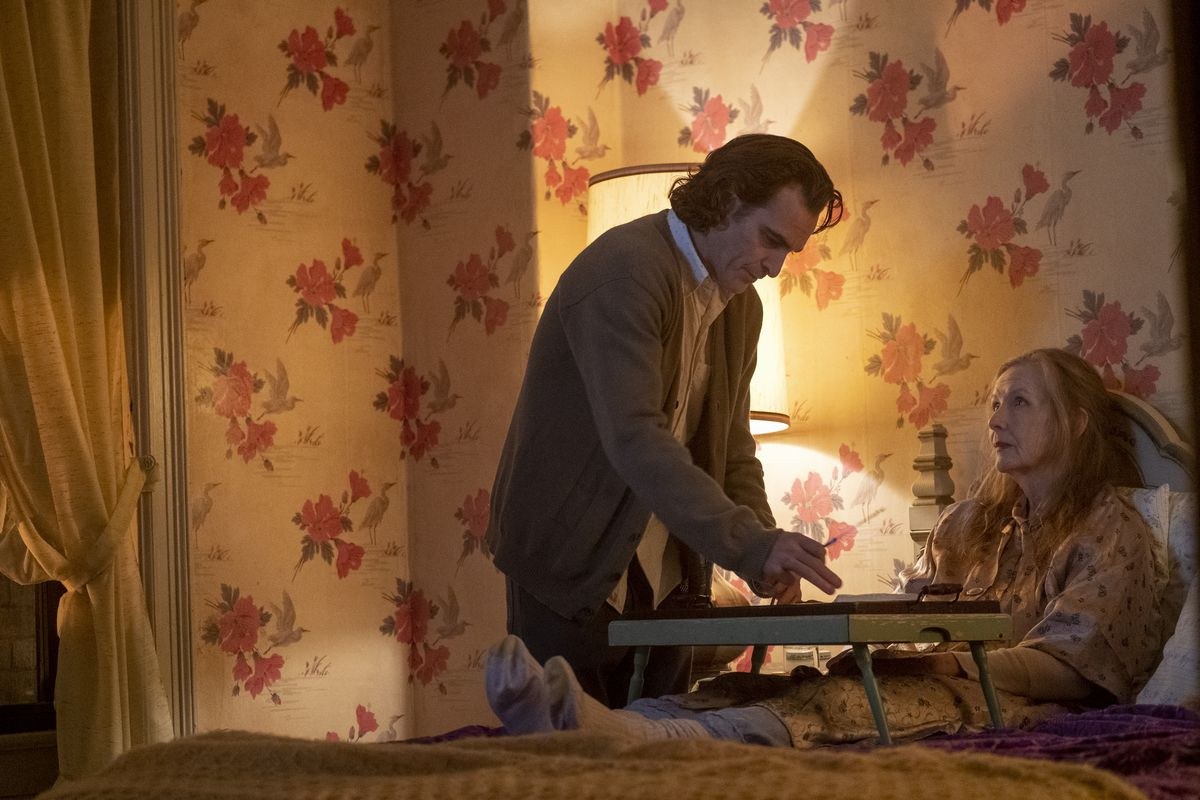
There’s no romance to his narrative, in fact, his life is a violent subversion of it. His subplot as a caring son culminates with him suffocating his psychotic mother to death upon realizing his abuse at her hands. His romantic pursuits with Zazie Beetz’s Sophie Dumond ends with him realizing that it was all a sad fantasy within his head. And just when we thought he could finally find his happy ending at his favourite talk-show with his idol Murray Franklin, he shoots him in the head.
His violence and his actions have never been framed as a means to which he achieves meaning and purpose, rather they impede it. His pride, his bitterness and his rage (which are not entirely unjustified) sends him spiralling into oblivion. There is no alignment, merely tragedy. In short, while people may relate to him, there’s little reason for anyone to want to be him.
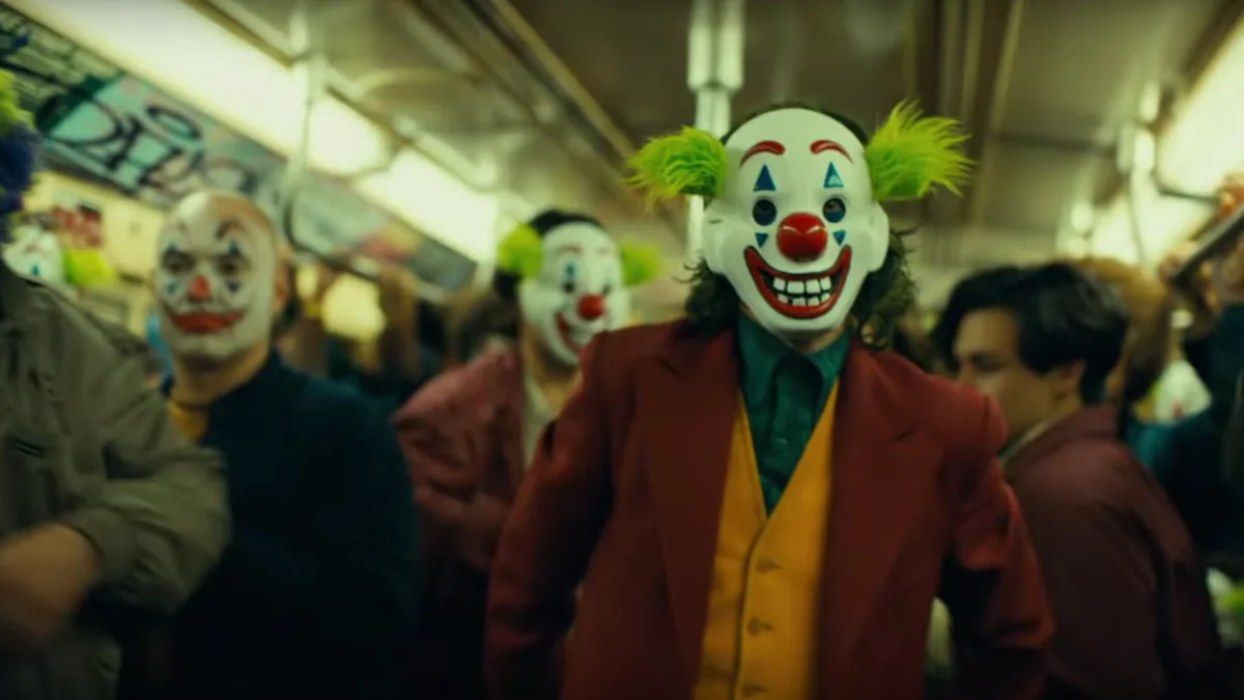
Even when he does finally achieve the cheer and applause of the riots he has inspired, he’s well aware of the hollowness of it all. Time and time again, he’s stated that he’s not political or that he has higher ideals or virtues. All the people he’s murdered, he did out of spite and anger. So there’s nothing there even to politicize or philosophize over. He’s merely a performer. A moving canvas on which people project their fears and desires upon. At the end of the day, he ends up right back where he started: the loonie bin.
I’m sure some folks might perceive the ending a little too celebratory. One could even construe the Joker’s happy stroll and dance through the asylum as a form of apotheosis for the character. Him finally coming to terms with who he is and his lot in life, in spite of his confinement. So even if he does technically get his comeuppance, he isn’t remorseful or disheartened by it. You can take away his dignity, freedom and rights but you can’t break him.
This concern seems to betray a certain anxiety within those who perceive punishment as rehabilitation. That our current institutions are ill-equipped to deal with the disenfranchised. In that case, I think the film’s ending is absolutely perfect! In the past, we have failed to be more inclusive and empathetic and so now, much like Gotham, we reap the sins of it. Perhaps neoliberal “walks of shame” or the capital/corporal penalties of conservatives aren’t enough. If anything, this film is a cautionary tale of a society that fails to examine and heals its social and economic divides.
At this point, I imagine some of you might be saying “Fine perhaps, there isn’t necessarily any alt-right, incel message baked into the film…BUT isn’t the violence deeply problematic here? Doesn’t its mere presence and gratuity have a negative influence on people?”
The Camera Contradicts
To that question, I say that the actual cinematic language of Joker’s scenes of violence seem to contradict this point. Let’s start with cinematography. At no point does the camera take on surreal or stylized angles such as films like Clockwork Orange or Wanted in which the camera slows down so that the audience may relish the violence. Nor does it ever kick up to 11 with kinetic tracking shots that can be used to display both fluidity and grace like Kingsmen’s ballet of death in the church.
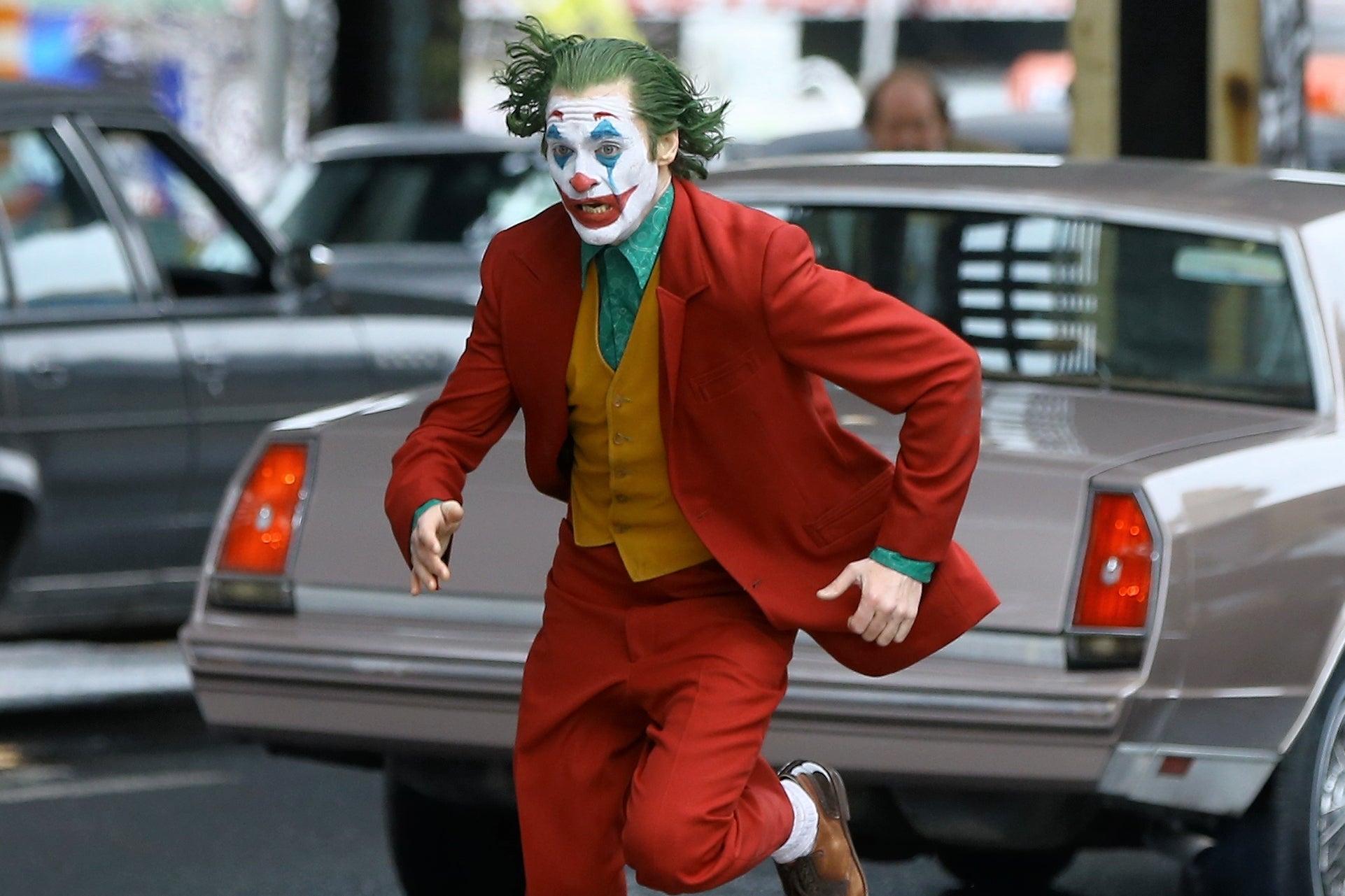
It’s mostly shot in a frenzied and claustrophobic manner with movement so quick you would miss if you blink. What the camera does linger on, however, would be the aftermath, made to have the audience contemplate upon the consequences of Arthur’s actions, not so much the violence itself.
In terms of sound, we never hear the score creep up into a cathartic crescendo or the ironic melody of upbeat tracks wash over during his misdeeds. All we really hear is the sickening thump of a clumsy fist or the deafening roar of a pistol fired in rapid succession. Whenever instances of violence do appear on screen, it’s nearly always made to mirror to Arthur Fleck’s character. It’s jarring, awkward and deeply uncomfortable, not unlike Arthur’s involuntary laughter.
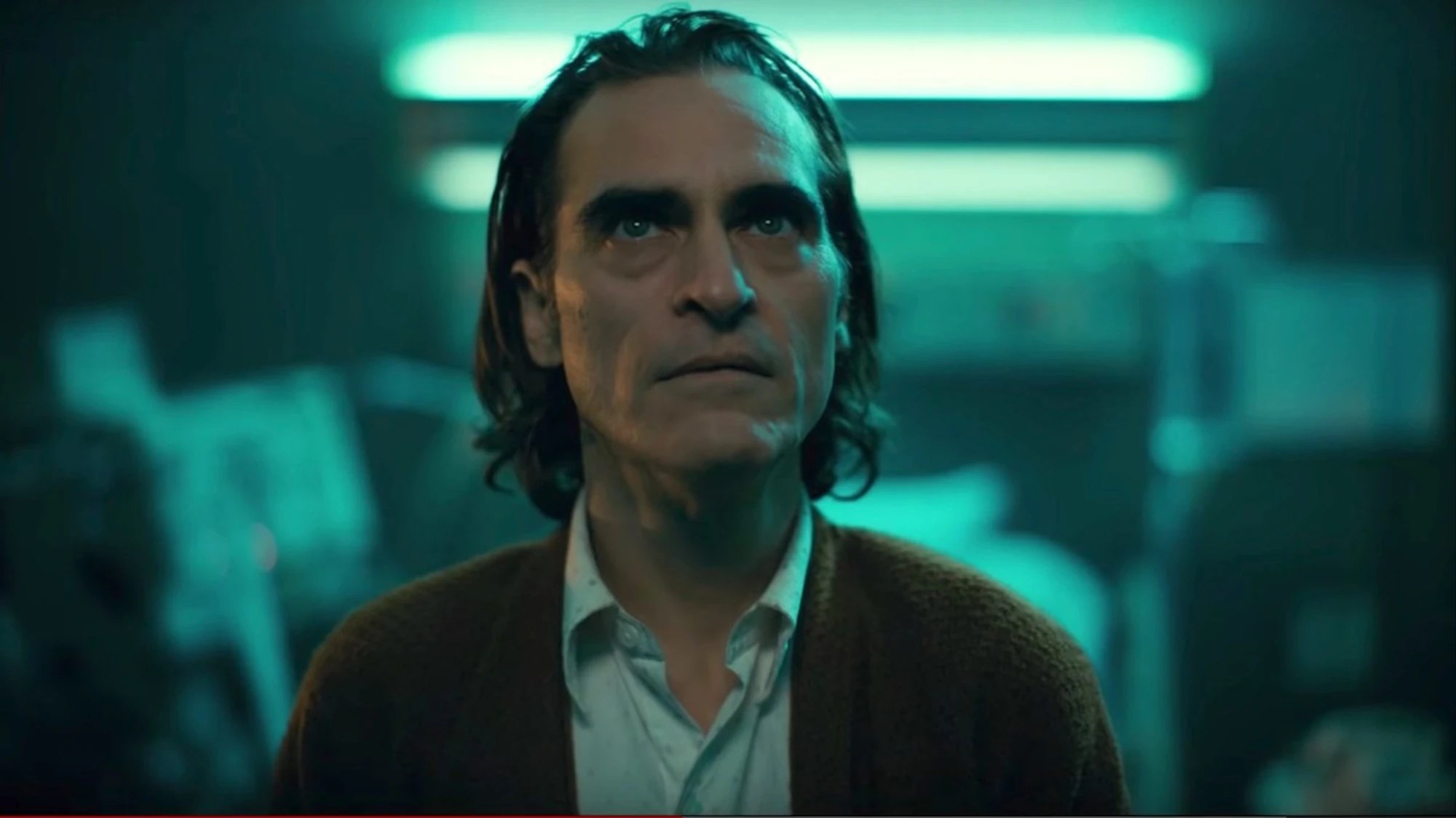
Then there’s Joaquin Phoenix’s performance. A far cry from the charismatic, menacing monster we saw in Heath Ledger’s rendition of the Joker. The beauty of Phoenix’s version is the uncanny valley that it inhabits. His plight and struggles are real enough that we relate to him on a profoundly human and vulnerable level. At the same time, his delusions, mannerism (namely that strange dance of his) and awkward demeanour border on the realm of alien. As if Fleck was fundamentally born broken in a world with no mercy for the weak and disenfranchised. An issue many who suffer from certain mental conditions may relate to.
Based on my viewing of the film and all the pieces on the film I’ve read, it would seem that the issue with Joker isn’t that the film romanticizes financially disadvantaged, socially disenfranchised white men lashing out at the system. Rather, it is the fact that it feels far too real. I can probably understand how the film might come off as upsetting to victims of those who lost loved ones in this new wave of white-male shootings and related acts of terrorism. It would be the equivalent of releasing a film about the mind and methods of an Al-Qaeda terrorist not long after 9/11.
To those who have been personally affected by these attacks, our hearts go out to you. Truly we do. That being said, we should not allow fear or moral panic to cloud our judgment in the way we view art. For when we do so, we only suppress these issues further, granting them an almost Voldermort-like effect. We highly commend director Todd Phillips bravery and brilliance in being able to tackle such a volatile topic without blatantly demonizing the Joker, or lionizing him as a hero.
Joker is currently screening in Malaysian cinemas.
Follow us on Instagram, Facebook, Twitter or Telegram for more updates and breaking news.


